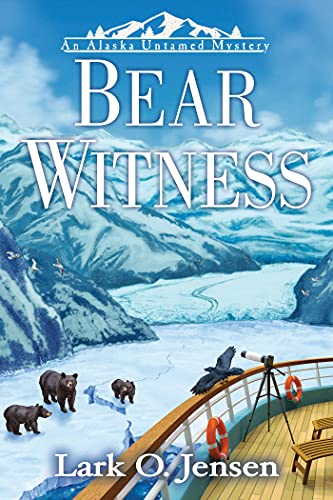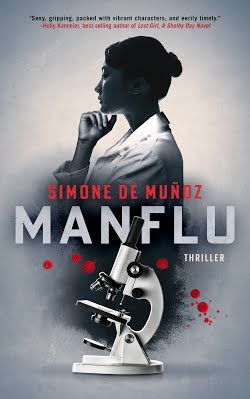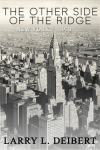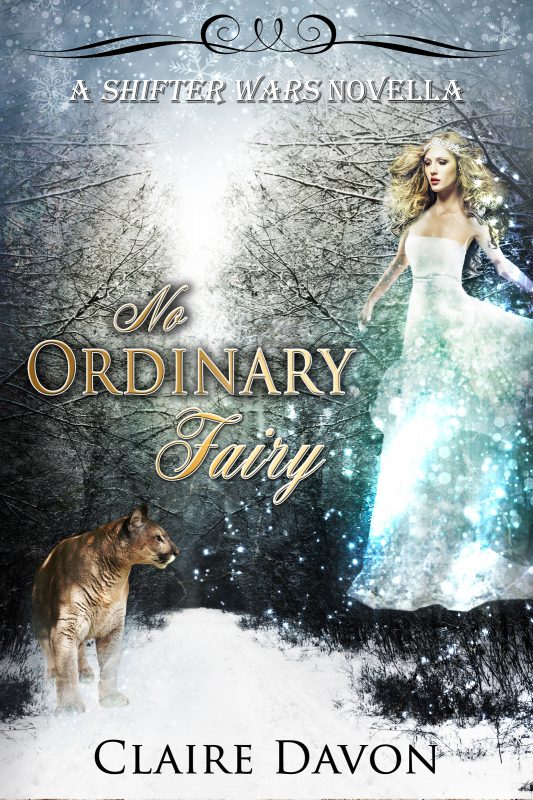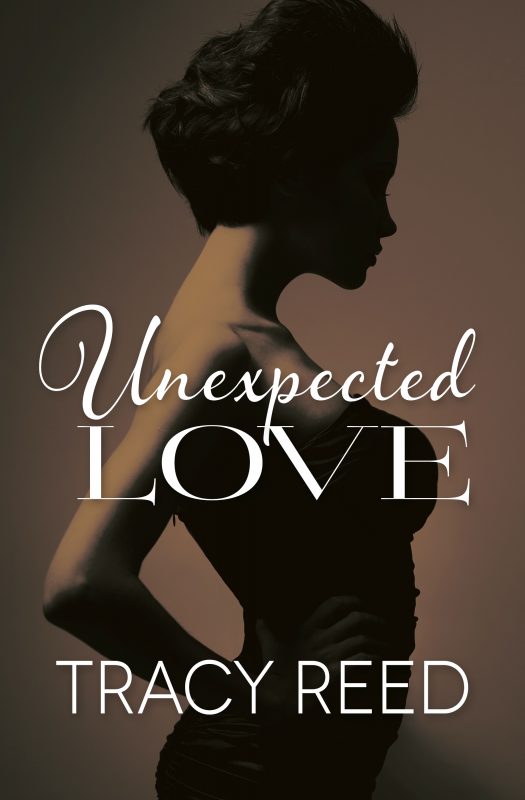WRITERS—Social Warriors
February 19, 2022 by Jenny Jensen in category On writing . . . by Jenny Jensen tagged as changing the world, gutsy women, social change, storytellers, voicies
Like most of you, I’m a voracious reader – voracious and omnivorous. I love every genre but I tend to binge. Right now I’m binging on historicals—adventure, detective, romance and biography. It started with the publication of a client’s historical seagoing adventure. I really love this client—dedicated, talented, determined – and best of all, his 18th century hero is surrounded by characters so real they practically walk off the page.

The cast of characters includes every walk of life one would find in postcolonial America and the wider world. From merchants to millers to a lesbian frontier woman, a free black family, an Ottoman Turk political fixer to a closeted gay Navel officer, not one of these critical players feels forced or token. There is no preachy message, no particular point to be made from this varied cast. They are simply the natural population of this writer’s historical period, as much as all types and flavors are, and always have been, the natural population of the world. Such characters have largely been written out of history by social convention.
In all this bingeing, I’ve come across a few works where the writer loudly and proudly proclaims they are whatever identity they are as opposed to the conventionally accepted population of American novels—mainly Anglo and heterosexual. These voices can feel strident, in your face, surprisingly aggressive. It feels like preaching and I’m not aware of belonging to any particular congregation. It’s awkward and uncomfortable and tends to get in the way of a good story. But beneath all the militant raging I recognize there’s a message that needs to be heard. And I think about the suffragettes.

The right to vote is so smoothly woven a part of my life that I have to make an effort to remember that these woman got strident, got in the face of convention, got extremely aggressive and unpleasant in order to win a basic human right 100 years ago. Those gutsy women were widely vilified, punished and imprisoned, but they got the message across. That’s how it is done.
Writers have always given us more than just great entertainment. Throughout the ages storytellers have had a major impact on society. Kepler’s Somnium (1634), offered radical ideas (the sun is the center of the solar system!) safely disguised as fiction. Uncle Tom’s Cabin, The Grapes of Wrath, Sophie’s Choice . . . a huge list of books from writers who humanized and taught us about people and worlds we were ignorant of before. Those authors were writers are, social warriors.

So I say welcome those strident voices. Be they people of a different skin color or people of a different bent, excluding their part in the stories of life—the stories we write and read – is to diminish the rich tapestry all writers wish to capture. Those walrus mustachioed gentlemen in their stiff collars and heavy suits survived the onslaught of the women’s vote – and thrived. So shall society survive and thrive acknowledging and embracing the existence of those voices that are not presently the conventional idea of the norm. Long live the power of the pen, the impact of the well told tale!
~Jenny
2 0 Read moreHello Hattie
January 19, 2022 by Jenny Jensen in category On writing . . . by Jenny Jensen tagged as Writing Advice, young authors
A long-term client has an eight-year-old granddaughter who wants to be a writer “just like Grandma”. My client asked me to give this young aspirant some advice about writing. I didn’t want to; I couldn’t think of the last time I’d talked with an eight-year-old – 20 years ago? Of course, I couldn’t say no–I ‘m very fond of this client – so I gritted my teeth and pulled up a blank page. I didn’t want even a note of condescension in this–she’d see through that like the Emperor’s clothes – so I carefully launched into the usual stuff like ‘write what you know’. I surprised myself at what came out.
Hello Hattie,
I think it’s wonderful that you want to be a writer. There’s no time like the present, so you’d best get started. The more you write, the better those words will be. Just like pull ups for your biceps or crunches for the abs, your brain is a muscle and it needs constant sweaty workouts to become the kind of buff story machine every reader wants to read. You got a story in your head? Get it down on paper – just sit down and let it rip. No one but you needs to see these early attempts – not until you’re ready to share – so there’s no shame here. It’s all about trying and doing and then trying and doing all over again. It won’t be long before you start to feel as one with this process of putting ideas and thoughts on paper in a way that reads like a story.
The most common advice to writers is to “write what you know”. Don’t think you know much yet? I’d say you do. You know what it’s like to be a smaller person in a world with a lot of really big people who seem to have lots of rules about what you’re supposed to do and you know how you really feel about some of those rules. Write about that. You know what it’s like to be one of the shortest people at the zoo where getting up close to the animals can be challenging. Write about that. You know what it’s like to be in a group of classmates during recess; you know what goes on amongst you on the playground. Oh yes, write about that.
Best of all though, you have your imagination and you know what’s in there. If it’s an imaginary world only you see and know what goes on there, get it down on paper and see where that takes your story. It can be life in outer space or under sea or in a world that you’ve built yourself. You see, you really do know a lot. Start writing about those things your imagination has crafted.
And read read read. If you love a story then ask yourself why, what made this tale touch you so deeply, how did the author present the beginning, the middle and the end in such a great way? And learn from those writers. Pay attention to how a particularly fantastic character is described, how the words tell you this is a character you will always love or always fear or want to run laughing from. Build you story telling skills by learning from the masters. After all, that’s how they learned much of the craft of writing. Never stop reading.
And never stop writing. I look forward to your first publication.
I’ve printed it out, signed in red ink and put it in a hand addressed envelope. I used a very pretty frog stamp. I’ll put it in the post tomorrow. This young lady may not long remember my advice but I’m betting she doesn’t forget her first snail mail letter.
2 0 Read moreLaughter Rx by Jenny Jensen
October 19, 2021 by Jenny Jensen in category On writing . . . by Jenny Jensen tagged as Auntie Mame, autumn, Flavia de Luce, funny books, Jenny Jensen, Magic and Mayhem
It’s fall. And it’s a beautiful fall. Cottonwoods are going gold, sunflowers are bursting out along the ditch banks and best of all, the Sandhill Cranes are returning. They do this amazing ballet in the sky, circling and calling out their own special symphony – music to rake leaves by.
I love the Fall and though it is marked by so much beauty; it is also tinged with melancholy. I’m not sure if that sadness is from mourning the end of summer and all that season gives us or if it’s just the knowing that dark, cold days are coming. Whatever the cause, fall can make me feel blue. What I need is a good laugh—hopefully a full on belly laugh.
There are plenty of comedy films and shows that are wonderful for a LOL, even a good ROTFL. I get a lot of joy from comedy films. I enjoy visual and physical comedy.
And I have to admit loving the thousands of classic film quips – words in the end after all – but it’s the humorous, witty, often ridiculous written word that uplifts my spirits for the long run. Books are the best place I’ve found for humor that sticks with you like a good diner meal.
Words stay with you – the perfect combination of words that describe a place, or show a feeling or capture the essence of this (often ridiculous) human condition we all share ‑ become a memory. (I guess that’s why Bartlett felt compelled to gather his faves into a big fat book. There are just so many good quotes. So many perfect words.) And unlike a visual motion media, the written word is taken in at your own pace – you have time to absorb the funny and appreciate it.
So I am making a new fall book list designed for the laughter that lightens the spirit. I’ve included some old favorites I haven’t looked at in years. Auntie Mame (Patrick Dennis) came to mind first. I thought I’d follow that with a couple of Flavia de Luce (Alan Bradley) adventures I haven’t read yet (nothing says cutting wit like an eleven-year-old British girl genius). What is needed next is some full on silly and for me nothing can do that better than a funny witch. I love Robyn Peterman’s Magic and Mayhem series and add one or three of those.
That’s as far as I’ve gotten. I’m stumped and so I’m reaching out to other readers for suggestions. Who better to ask than the authors, devotees and avid readers of Slice of Orange? If you’ve chanced to read this post, I’d love to hear your humorous book suggestions. I’d especially like to read a romance that will make me laugh as well as sigh with satisfaction. I have a feeling it’s going to be a long, dark winter. We need to keep the laugh meter spiking. Enjoy the fall and thanks in advance.
3 1 Read morePORTMANTEAUS by Jenny Jensen
September 19, 2021 by Jenny Jensen in category On writing . . . by Jenny Jensen tagged as creative writing, English, language, portmanteau
We’re so lucky. The English language is like play dough.
Oh yes, we have strict rules of grammar, tense, POV, all the way to the minutia of intransitive verbs. We can choose from a number of eminent grammar and style guides to ensure conformity. We have stalwart English teachers to drill those rules into our heads so that we are all on the same page. (And bless them all – there is nothing better than order over chaos). But despite those rules a writer has so much freedom to shape our mother tongue into forms wry, brittle, silly, heartbreaking, snarky or just plain mad.
I don’t have much command of any other language; a smatter of German, a soupçon of French, about a third cup of Latin and a healthy plateful of Spanish. But I do know that the rules of those languages are not as forgiving as English — not as much room to roam before you run afoul of the language police. English allows us to mangle all the rules of spelling, meaning, and sentence structure to reflect dialect, or character traits, add color, shift perceptions or mood and anyone with a good command of English can understand — and only pedants ever complain. Of course, you have to use the rules of punctuation. Gotta have those traffic signs.
Anthony Burgess used bits and pieces of Russian mixed with Shakespearian English and other tongues to give us Nadsat, the terrifyingly unique argot of his dark characters in A Clockwork Orange. The reader may have had to work at it a bit, but it was intelligible and colored the story with an unforgettable feel. Fantasy and Sci Fi from J.K. Rowling to Ursula K. Le Guin play with all sorts of mixed up language that become magical words and when you’re reading in those worlds you understand.
Dialect and special vocabulary enrich a tale on many levels and I’m in awe of those writers who do them well, but my favorite form of play dough English is the portmanteau. Anybody can create one of these inventive combinations, and everybody does — usually with something faintly deprecating or ironically funny in mind. And with just one word a portmanteau can ooze with meaning. Frenemy speaks volumes — we’ve all had one and it’s exhilarating to give ‘em a proper name. Craptacular very neatly wraps up the verdict on so much of our over-hyped media. And then there’s pompidity, my own invention from University days when I struggled to describe the quality of politicians.
All writers love words. Words are paint, chisel, fabric, and clay for our creativity. If you can’t find that one word that perfectly reflects your intent, try cobbling a new one together — no one will take points away. Blog is a portmanteau (web log) so if you’re lucky enough to have your portmanteau go viral, you might wind up in the OED.
Jenny
3 0 Read moreMake Mine Slang by Jenny Jensen
August 19, 2021 by Jenny Jensen in category On writing . . . by Jenny Jensen tagged as characterization, language, Planning, research, Slang, Writer's Toolbox
This character, Tall T Reynolds, is growing in my mind. I can see him tanned and raw and a bit dusty. I know his world is the 1940’s rural west and I know he’s going to briefly meet Lottie, a beautiful girl in a gleaming open topped coupe. Their brief exchange will never leave his mind. Soon after, Tall T will go off to war in Europe. He and Lottie will meet again in a most unexpected way.
I want these two MCs to be drawn as very different in all ways but the heart. I want to show those differences subtly and naturally. I want to tell the story mostly in dialog, no long narratives, no narrative tells. I know that means voice and tone will have to be pitch perfect so it’s language that shows their differences, that makes each wholly human and credible. I thought about using dialect but rejected the idea. I don’t trust my skills to pull that off successfully. Besides, they are both smart and fairly well educated. This is not a rustic pauper gets the princess story. Still, they are from very different worlds – until they’re not.
After rummaging about a bit in the writer’s toolbox, I’m thinking slang as a way to initially set them apart and ultimately bring them together. Slang is an interesting critter. It’s a very flexible tool. It’s hard to pin down what is slang and what isn’t. Slang changes so fast. Yesterday’s ‘far out’ is today’s ‘snatched’, but it’s pretty clear what slang does for us. The casual use of slang terms show we’re in the know, we belong to that group who understands what it is to ‘I oop’. More to my purposes, slang is a shared affinity of age and disposition and attitude.
Slang can be subversive, playful, derisive, affectionate, even endearing – all such very human qualities – and human is what I want to show in circumstances that aren’t all that humane. Ever changing, almost updating itself to fit shifting circumstances slang morphs from common terms to become familiar to a community who is living and sharing shifting circumstances. How else explain today’s use of ‘ghost’? Slang can turn meaning topsy turvy, assigning an opposite meaning to words – an effective response to a world that feels turned upside down. To say you ‘destroyed’ something today certainly doesn’t mean to me what it means to a teen.
Because slang is a hallmark of a shared, exclusive world it’s the perfect devise to reinforce the journey of Tall T and Lottie through the chaos of a world war to a shared reality. They will be tested in ways they’ve never imagined in a world where familiar conventions don’t always apply and time can be frightfully short. At their first meeting, Lottie’s language will baffle Tall T; he will know from that brief exchange that they are from very different worlds. By the end, they will share an unspoken understanding of how fubar life can be. They’ll both know the world is cockeyed and with one exchange of peepers they’ll know where to meet because they have all the dope on the good places. They are people with plenty of moxie who become each other’s killer diller.
I will be careful though. I don’t want them to sound like they’re trying too hard to be cool, or are too stupid to express themselves in any other way. I want to salt the slang effectively, add just that kick of heat a touch of chili adds to a good stew. Like seasoning, I’m going to need a deft hand. I can imagine how clumsy a slang word could feel, or how tiresome the overuse could become. There’s a lot of revision ahead for me if I’m going to Keep it 100. Forewarned is forearmed. I’ll stop beating my gums now and immerse myself in the slang of The Greatest Generation. Roger. Wilco.
Affiliate Links
A Slice of Orange is an affiliate with some of the booksellers listed on this website, including Barnes & Nobel, Books A Million, iBooks, Kobo, and Smashwords. This means A Slice of Orange may earn a small advertising fee from sales made through the links used on this website. There are reminders of these affiliate links on the pages for individual books.
Search A Slice of Orange
Find a Column
Archives
Featured Books
BEAR WITNESS
Alaska tour boat guide Stacie Calder faces the deep freeze
More info →THE OTHER SIDE OF THE RIDGE, NEW YORK, 1930
Dan Rodin has once again transcended time...
More info →UNEXPECTED LOVE
I can't believe I fell in love with my husband's best friend.
More info →Newsletter
Contributing Authors
Search A Slice of Orange
Find a Column
Archives
Authors in the Bookstore
- A. E. Decker
- A. J. Scudiere
- A.J. Sidransky
- Abby Collette
- Alanna Lucus
- Albert Marrin
- Alice Duncan
- Alina K. Field
- Alison Green Myers
- Andi Lawrencovna
- Andrew C Raiford
- Angela Pryce
- Aviva Vaughn
- Barbara Ankrum
- Bethlehem Writers Group, LLC
- Carol L. Wright
- Celeste Barclay
- Christina Alexandra
- Christopher D. Ochs
- Claire Davon
- Claire Naden
- Courtnee Turner Hoyle
- Courtney Annicchiarico
- D. Lieber
- Daniel V. Meier Jr.
- Debra Dixon
- Debra H. Goldstein
- Debra Holland
- Dee Ann Palmer
- Denise M. Colby
- Diane Benefiel
- Diane Sismour
- Dianna Sinovic
- DT Krippene
- E.B. Dawson
- Emilie Dallaire
- Emily Brightwell
- Emily PW Murphy
- Fae Rowen
- Faith L. Justice
- Frances Amati
- Geralyn Corcillo
- Glynnis Campbell
- Greg Jolley
- H. O. Charles
- Jaclyn Roché
- Jacqueline Diamond
- Janet Lynn and Will Zeilinger
- Jaya Mehta
- Jeannine Atkins
- Jeff Baird
- Jenna Barwin
- Jenne Kern
- Jennifer D. Bokal
- Jennifer Lyon
- Jerome W. McFadden
- Jill Piscitello
- Jina Bacarr
- Jo A. Hiestand
- Jodi Bogert
- Jolina Petersheim
- Jonathan Maberry
- Joy Allyson
- Judy Duarte
- Justin Murphy
- Justine Davis
- Kat Martin
- Kidd Wadsworth
- Kitty Bucholtz
- Kristy Tate
- Larry Deibert
- Larry Hamilton
- Laura Drake
- Laurie Stevens
- Leslie Knowles
- Li-Ying Lundquist
- Linda Carroll-Bradd
- Linda Lappin
- Linda McLaughlin
- Linda O. Johnston
- Lisa Preston
- Lolo Paige
- Loran Holt
- Lynette M. Burrows
- Lyssa Kay Adams
- Madeline Ash
- Margarita Engle
- Marguerite Quantaine
- Marianne H. Donley
- Mary Castillo
- Maureen Klovers
- Megan Haskell
- Melanie Waterbury
- Melisa Rivero
- Melissa Chambers
- Melodie Winawer
- Meriam Wilhelm
- Mikel J. Wilson
- Mindy Neff
- Monica McCabe
- Nancy Brashear
- Neetu Malik
- Nikki Prince
- Once Upon Anthologies
- Paula Gail Benson
- Penny Reid
- Peter J Barbour
- Priscilla Oliveras
- R. H. Kohno
- Rachel Hailey
- Ralph Hieb
- Ramcy Diek
- Ransom Stephens
- Rebecca Forster
- Renae Wrich
- Roxy Matthews
- Ryder Hunte Clancy
- Sally Paradysz
- Sheila Colón-Bagley
- Simone de Muñoz
- Sophie Barnes
- Susan Kaye Quinn
- Susan Lynn Meyer
- Susan Squires
- T. D. Fox
- Tara C. Allred
- Tara Lain
- Tari Lynn Jewett
- Terri Osburn
- Tracy Reed
- Vera Jane Cook
- Vicki Crum
- Writing Something Romantic
Affiliate Links
A Slice of Orange is an affiliate with some of the booksellers listed on this website, including Barnes & Nobel, Books A Million, iBooks, Kobo, and Smashwords. This means A Slice of Orange may earn a small advertising fee from sales made through the links used on this website. There are reminders of these affiliate links on the pages for individual books.

